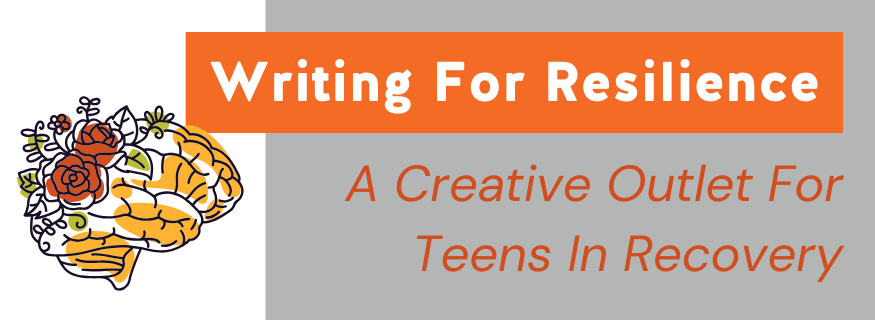
In a cozy classroom tucked in the heart of Denver, the scratching of pencils and clicking of keyboards fills the silence—a group of about a dozen students at 5280 High School write intently. Today, they’re composing letter-based poems to loved ones in their lives. Once they finish, some students share their work and bond over how the experience is helping their healing journey. One student, who does not share, instead opts to approach the instructor and Young Writers Program Coordinator at Lighthouse, Ashley Bunn (she/they), after class. They share how they wrote a letter to their younger self about how their life will get better and how they will become sober, happy, and healthy soon. This is not only a moment of reflection, but a moment of connection. Thanks to an environment founded on trust and acceptance, the student realizes that they now trust and accept themself.
This moment was at a Writing for Resilience workshop, one of Lighthouse’s latest community youth programs. At 5280, the nation’s largest recovery-based high school, students—often recovering from addiction, self-harm, and eating disorders—can rebuild their lives through project-based learning and comprehensive support. Ashley brings both structure and warmth to each session, guiding students through themed prompts that explore confidence, creativity, and the mind-body connection.
“This writing program is a way for kids to learn that creative writing can be one of the tools in their toolbox for coping with stress, anxiety, and other mental health struggles. We’re also trying to create safe, inclusive communities for kids to be creative and share with each other. We hope they take the knowledge that creativity and creative writing can be a useful tool for mental wellbeing into the rest of their lives,” Ashley said when describing the program.
Creative expression benefits everyone, especially those who have gone through addiction.
Iya Ifalola (she/they), a teacher and assistant administrator at 5280 High School, discussed how the Writing for Resilience program supports their students. She shared, “When you start using substances at such a young age, your brain is used to being satisfied in different ways. We help students find pleasure again in creating something cool, and that’s a part of how we support reprogramming the adolescent brain that was previously experiencing addiction.”
For Iya, one particular moment from a Writing for Resilience session stands out: “When the students made blackout poems, it was really cool to watch them learn a new technique and then play around with it. What I’ve enjoyed the most in watching them is just how they come in with different ideas about themselves and writing, then come together with diverse perspectives and engage in an activity together.”
The classroom is more than a place to write, becoming a space for creativity and connection like Iya observed.
In just one short semester, numerous students have shared how Writing for Resilience added to their healing journeys and showed them that the capacity to care for themselves was always within. After reflecting on the program’s impact, Ashley emphasized, “We all have a natural inner resilience. It’s not something that we’re teaching, but rather something we’re uncovering.”
Programs like Writing For Resilience are funded through the generous support of community members like you. We’d like to thank everyone who has donated to Lighthouse to keep these programs accessible for all. To foster more transformative moments through writing, consider supporting Lighthouse Writers Workshop today. Donate now, become a member, or contact info@lighthousewriters.org to learn more about your place in the Lighthouse Writers community.

